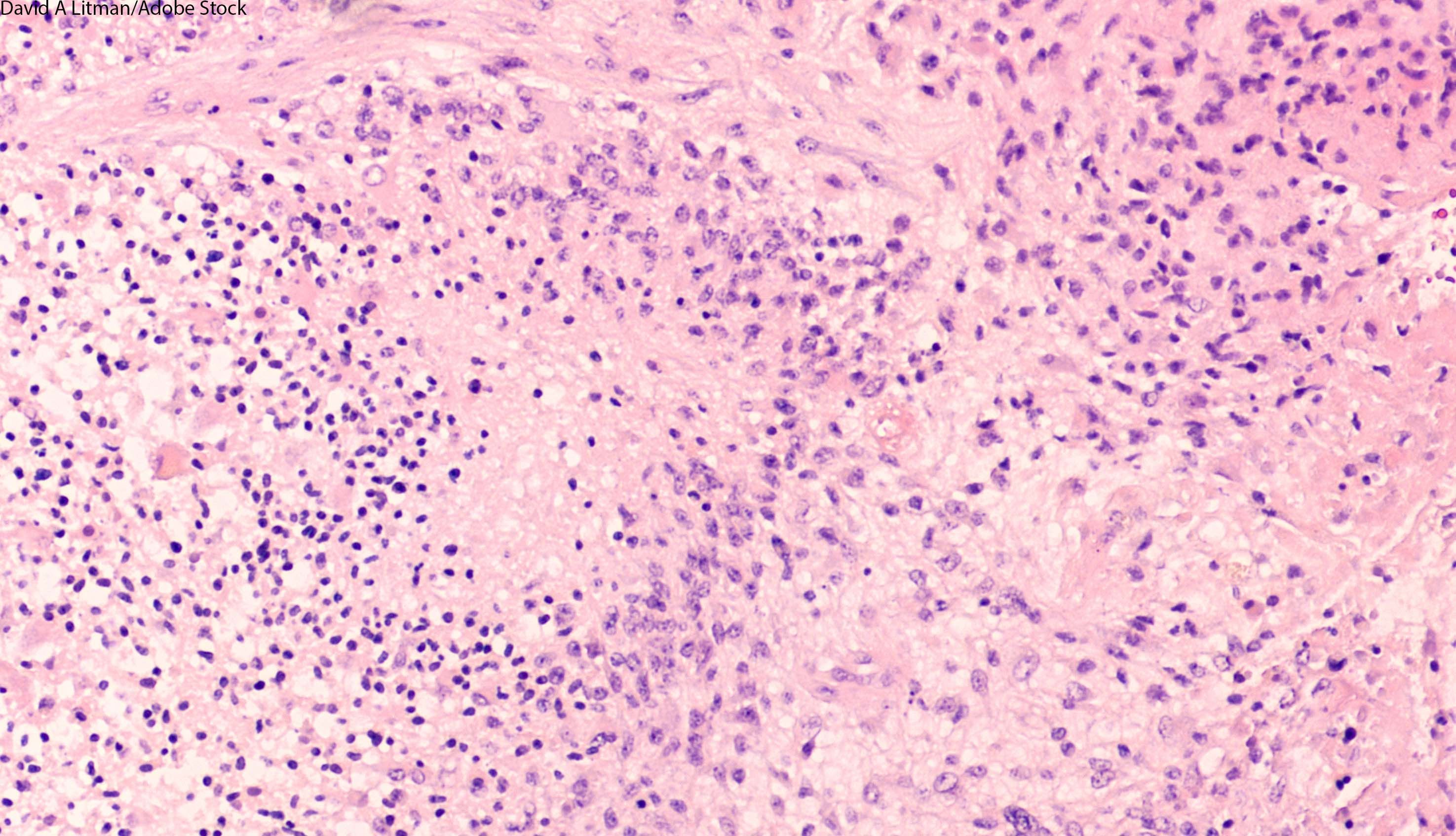FDA Grants Fast Track Designation to Novel EGFR Inhibitor in Glioblastoma
ERAS-801, which now has FDA fast track designation for glioblastoma with EGFR alterations, is currently under investigation as a monotherapy in the phase 1 THUNDERBBOLT-1 trial.
The FDA has granted fast track designation to the investigational small molecule EGFR inhibitor ERAS-801 as a treatment for patients who have glioblastoma with EGFR gene alterations, according to a press release from Erasca, Inc.1
Initial monotherapy data from the phase 1 THUNDERBBOLT-1 trial evaluating ERAS-801 in recurrent glioblastoma are expected in the second half of 2023.

The FDA originally cleared an investigational new drug application for ERAS-801 in this patient population in December 2021.2 Clearance of the application permitted investigators to continue with their evaluation of single-agent ERAS-801 in patients with recurrent glioblastoma as part of the phase 1 THUNDERBBOLT-1 trial (NCT05222802). Investigators anticipate a readout of phase 1 trial data in the second half of 2023.
“Receiving [fast track designation] from the FDA underscores the serious unmet medical need in patients with [glioblastoma] and reinforces the promise that ERAS-801 may offer as a differentiated treatment option,” Jonathan E. Lim, MD, chairman, chief executive officer, and co-founder of Erasca, said in the press release. “We look forward to working closely with the FDA to expedite clinical development of ERAS-801 for these patients and anticipate reporting initial monotherapy data from the phase 1 THUNDERBBOLT-1 trial in recurrent [glioblastoma] in the second half of 2023.”
The orally available, selective, highly potent small molecule EGFR inhibitor ERAS-801 was designed to exhibit significantly enhanced central nervous system penetration. Across patient-derived glioblastoma models, ERAS-801 yielded a survival benefit in 93% of EGFR mutant and/or amplified models while showing statistically significant improvements in brain penetrance and prolonged survival compared with other approved EGFR tyrosine kinase inhibitors like osimertinib (Tagrisso), lapatinib (Tykerb), and erlotinib (Tarceva).
Investigators of the open-label, multi-center phase 1 THUNDERBBOLT-1 trial are assessing the tolerability, safety, and preliminary efficacy of ERAS-801 monotherapy in patients with recurrent glioblastoma. Investigators will orally administer ERAS-801 to patients in sequential ascending doses until unacceptable toxicity or progressive disease as part of a dose escalation portion, which will determine the recommended dose for the dose expansion portion to further assess the agent.
The primary end points of the THUNDERBBOLT-1 trial include determining dose-limiting toxicities, the maximum tolerated dose, the recommended dose, and adverse effects. Secondary end points include the plasma concentration and half-life of ERAS-801, objective response rate, duration of response, and time to response.
Patients 18 years and older with a diagnosis of isocitrate dehydrogenase wild-type glioblastoma based on World Health Organization 2021 criteria are eligible for enrollment on the trial. Additional eligibility criteria include having adequate organ function; a willingness to comply with all protocol-required visits, assessments, and procedures; and being able to swallow oral medication.
Patients who have previously received treatment with EGFR inhibitors for glioblastoma or are enrolled in another therapeutic study are not eligible to enroll on the trial. Patients are also unsuitable for enrollment if they have a history of clinically significant cardiovascular disease, gastrointestinal conditions that may affect administration of oral medication, or an active infection requiring systemic therapy. Having any serious underlying medical conditions or known allergies, or hypersensitivity or intolerance to ERAS-801 or its excipients are also grounds for exclusion.
References
- Erasca granted FDA fast track designation for CNS-penetrant EGFR inhibitor ERAS-801 in patients with glioblastoma. News release. Erasca, Inc. May 1, 2023. Accessed May 3, 2023. bit.ly/3NySOKw
- Erasca announces FDA clearance of IND application for ERAS-801 in glioblastoma multiforme and collaboration with GCAR for potential inclusion in GBM AGILE trial. News release. Erasca, Inc. December 17, 2021. Accessed May 3, 2023. bit.ly/3p4Re9e